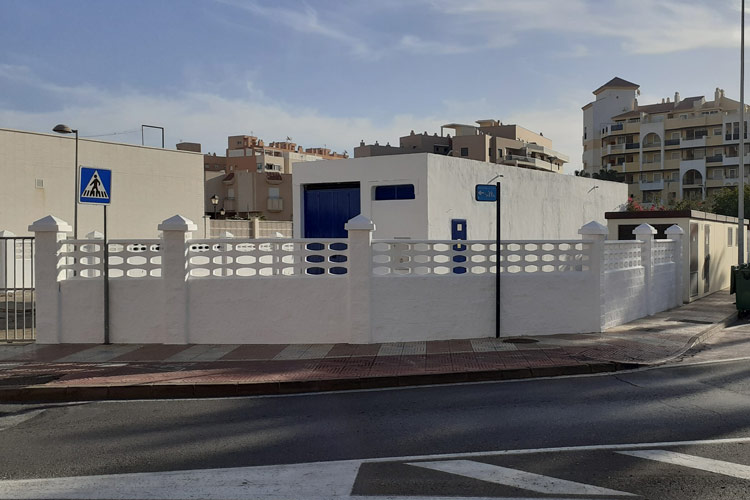Pilot test for odor reduction in sewerage network in Roquetas de Mar reaches 75% effectiveness
The Consortium's forecast for the Integral Cycle of West and Hidralia Water is to achieve up to 90% reduction in emissions of hydrogen sulfide, a substance that causes odors in networks
The Consortium of the Integral Water Cycle (CIAP) and Hidralia, a concessionaire of the integral water service in Roquetas, already have the results of the pilot experiences carried out - the first in August and the second in November - for the reduction of odors of the city's sewerage network. According to the report carried out after testing, the dosing of a new treatment in the sewage of the locality has allowed to certify the reduction of up to 75% of odour problems. The forecast is to reach more than 90%, virtually eliminating the problem of odors in the sanitation service.

CiaP President and Councilor for Urban Development of The City of Roquetas, Francisco Gutiérrez, emphasizes that "from the Consortium of the Integral Water Cycle of Poniente Almeriense we have a commitment with the citizens of Roquetas de Mar to improve the situation of the Wastewater Pumping Stations (EBAR) and some of them are having odor problems, so we started this test". According to Gutierrez, "the results are being very positive, which will lead us to extend this treatment to the months of greatest influx, in the summer season, which are the most problematic we have".
The method is to apply calcium nitrate to wastewater to reduce the hydrogen sulfide they release, which is the main cause of discomfort from bad odors. This product has been applied in two strategic points of the city's sewerage network: the EBAR of Aguadulce and Sabinar (Urbanization), to check its effects in points inside the network, such as Las Salinas or Paseo de Los Baños.
According to the report itself, a significant reduction in hydrogen sulfide has been certified in the areas of application of the treatment, most accentuated in the first case, reaching up to 80% across its infrastructure. At the second point, only 50% was reached so it was decided to expand and dos the product in the pumping of La Grilla (La Mojonera). Following the trial period and relevant verifications, an increase in effectiveness of up to 70% of the reduction in odors has been certified.
Preventive treatment
Calcium nitrate is a liquid solution that is dosed directly into the sanitation network and that prevents the appearance of hydrogen sulfide, by affecting the processes that naturally or spontaneously develop in collectors generating odoriferous substances as a result of their metabolism. For it to work it needs to be a constant system, since it is a preventive treatment whose optimal dose depends on different factors to consider, such as the water temperature, its chemical composition or its time of residence in the network.
After the good results obtained, the Consortium together with the technical team of Hidralia already work to determine the best locations to carry out this treatment, as well as to make the necessary adjustments to the infrastructures that allow the product to be dosed permanently.
Upcoming works on the Roquetas sewage treatment plant
Francisco Gutierrez stresses that CIAP approved at its last assembly, held two weeks ago, include in the budget for 2021 "an investment of more than 300,000 euros to make improvements in the deodorization of the sewage treatment plant of Roquetas de Mar, which also serves San Agustín, Vícar and La Mojonera, which will allow the odors present at the entrance to the municipality and the area of Las Salinas to disappear".
